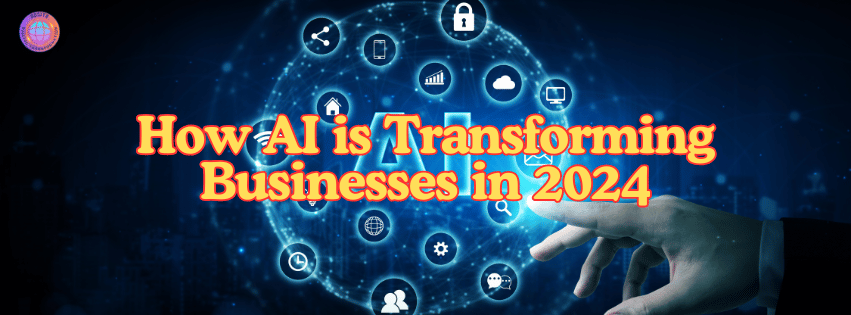
1. Understanding How AI is Transforming Businesses
Artificial intelligence is a broad term that covers multiple technologies designed to simulate human intelligence in machines. It encompasses machine learning (ML), natural language processing (NLP), computer vision and predictive analytics, among others. Businesses are using these technologies to solve complex problems, automate processes and gain insights from vast amounts of data.
Machine learning algorithms, for instance, help in pattern recognition, allowing businesses to predict customer behavior and optimize product offerings. NLP enables machines to understand and respond to human language, powering chatbots and virtual assistants. Computer vision aids in quality control for manufacturing and security in various industries. Each of these AI technologies is driving a new era of business efficiency and personalization.
2. AI-Powered Customer Service
One of AI’s most impactful applications is in customer service. AI-powered chatbots and virtual assistants are now capable of providing round-the-clock support, answering customer inquiries instantly and even handling complex queries. These tools free up human agents to focus on more nuanced tasks and allow businesses to maintain a consistent, high-quality customer service experience at scale.
Personalization is another area where AI shines. By analyzing customer data, AI can deliver tailored recommendations and services, making interactions feel personalized and relevant. Companies like Amazon and Netflix have mastered this with AI-driven recommendation engines that keep customers engaged and coming back for more.
3. AI and Predictive Analytics
Predictive analytics is transforming how businesses anticipate market trends and make strategic decisions. By analyzing past data, AI algorithms can identify patterns and predict future outcomes. This capability is invaluable for industries like retail, where predicting demand can inform inventory management, pricing and promotions.
In e-commerce, predictive analytics helps companies understand which products are likely to be popular, enabling targeted marketing and optimized inventory planning. It also aids in anticipating customer churn, enabling businesses to retain valuable customers by implementing proactive engagement strategies.
4. Sales and Marketing Automation with AI
AI has revolutionized sales and marketing by making it easier for businesses to reach the right audience with the right message. AI-powered marketing tools can analyze customer behavior, segment audiences and personalize content at scale, helping brands create meaningful connections with their customers.
Marketing automation has also benefited from AI advancements. From targeted email campaigns to automated social media posts and content generation, AI tools make it possible to execute complex marketing strategies with minimal human intervention. Additionally, sentiment analysis can track brand perception on social media, providing insights that help businesses adapt to customer needs in real time.
5. Enhancing Operations and Reducing Costs with AI
AI is also enhancing operational efficiency and cost-effectiveness. In supply chain management, AI helps with demand forecasting, inventory optimization and logistics, making the entire chain more resilient and responsive to changes. In manufacturing, robotics powered by AI are improving production speeds and precision, reducing waste and ensuring consistent quality.
Predictive maintenance is another key AI application, particularly in industries with heavy machinery. By analyzing data from sensors, AI can predict when a machine is likely to fail, allowing businesses to perform maintenance proactively and reduce downtime.
6. AI for Financial Management and Fraud Detection
AI’s role in finance is critical, as it helps businesses manage risk and enhance security. AI-powered tools are used in budgeting, forecasting and investment analysis, providing finance teams with actionable insights that help them make data-driven decisions.
In the banking sector, AI has become essential for fraud detection and security. Machine learning algorithms can identify unusual patterns in transactions, flagging suspicious activity for further investigation. Digital banking and investment platforms also benefit from AI’s predictive capabilities, which help in identifying risks and opportunities in real-time.
7. Human Resources and AI-Driven Recruitment
AI is transforming human resources (HR) by making recruitment more efficient. From screening resumes to matching candidates’ skills with job requirements, AI streamlines the hiring process and improves candidate quality. AI can also be used in employee onboarding, automating tasks and ensuring a smooth integration for new hires.
Additionally, HR analytics powered by AI provide insights into employee performance, helping HR teams develop data-driven strategies for workforce planning, talent retention and employee engagement. By tracking metrics like productivity, engagement and turnover rates, AI enables companies to build a more dynamic and adaptable workforce.
8. AI and Cybersecurity
As cyber threats grow in sophistication, AI has emerged as a critical tool for enhancing cybersecurity. Machine learning models can analyze network traffic to detect anomalies, allowing businesses to identify and respond to potential threats before they become serious breaches.
Many companies are using AI-powered solutions for real-time threat detection, data protection and compliance monitoring. With AI, businesses can better protect sensitive information, safeguard customer data and build trust with their clients.
9. Real-Life Case Studies: How Top Companies Use AI to Grow
Many top companies are already seeing impressive results from AI adoption. Walmart, for example, uses AI for supply chain management and inventory forecasting. JPMorgan Chase applies AI in fraud detection and investment analysis, while IBM Watson Health is at the forefront of using AI in healthcare for personalized treatment plans.
These examples show that AI isn’t just for tech giants—small and medium businesses are also leveraging AI to enhance productivity, reduce costs and improve customer service. From retail to finance to healthcare, AI is helping companies drive growth and stay competitive.
Conclusion
AI is a transformative force in today’s business landscape, offering tools and insights that are essential for growth. As AI continues to evolve, businesses that adopt these technologies now will be better equipped to meet the demands of the future. In 2024 and beyond, we can expect to see even more AI innovations that make these tools accessible to companies of all sizes.
Predicted Trends include:
- Increasing affordability of AI tools.
- More emphasis on ethical AI and data privacy.
- Greater accessibility for small businesses.
By incorporating AI solutions into their operations, businesses can enhance efficiency, improve customer satisfaction and ultimately drive growth in a rapidly evolving market.
Follow Us for More Tech Insights!
📲 Stay connected on Facebook, LinkedIn and Instagram for the latest updates on technology trends, 5G advancements and innovations shaping the future. Don’t miss out—follow us today!

